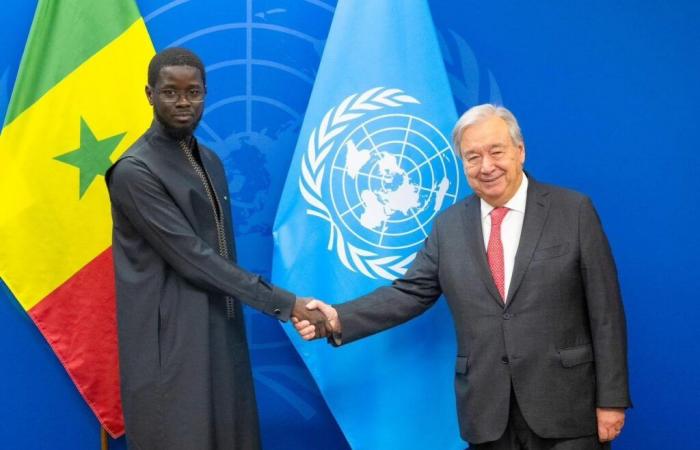New York (© 2025 Afriquinfos) – Senegal is one of the two countries which will graduate from the category of least developed countries (LDC) on December 19, 2029, after being granted, exceptionally, a preparatory period extended by five years, indicated on December 19, 2024, the United Nations General Assembly according to a resolution adopted. The country has made notable progress in the area of economic and human development.
« The United Nations General Assembly adopted resolution A/79/L.49, relating to the graduation of Cambodia and Senegal from the category of least developed countries. The two countries will graduate from the LDC category on December 19, 2029 after being exceptionally granted an extended preparatory period of five years to enable them to prepare effectively and ensure a smooth transition “, indicated the UN Department of Economic and Social Affairs in a press release.
He also invited Dakar and Phnom Penh to develop national strategies for smooth transition, with the assistance of United Nations agencies and in collaboration with their bilateral, regional and multilateral trade and development partners, while recalling that “ Graduation from the least developed country category is a momentous event, signifying progress towards achieving at least part of the development goals ».
According to the United Nations (UN) General Assembly, the standard period is three years to allow countries to effectively prepare for graduation and ensure a smooth transition out of the category.
A member country of the Economic Community of West African States (ECOWAS), Senegal has made significant progress in recent decades in the areas of the economy and human development.
After achieving average annual growth of 6% between 2014 and 2019, the Senegalese economy was hit hard by the impacts of covid-19, the war in Ukraine and local political tensions, which resulted in rates of growth below expectations in 2023 and 2024, at 4.1% and 5% respectively, according to forecasts.
The start of hydrocarbon exploitation nevertheless gives very favorable economic prospects in the medium term for Senegal. According to forecasts from the International Monetary Fund (IMF), growth is expected to reach 10% in 2025.
Senegal also saw its human development index increase from 0.371 points in 1990 to 0.517 points in 2022 on a scale ranging from 0 to 1 point.
-A process based on three socio-economic criteria
The LDC category was officially established in 1971 by the UN General Assembly to attract special international support for its most vulnerable and disadvantaged members. This status notably gives these countries the right to preferential access to markets, development aid, special technical assistance and technological capacity building.
After a triennial review of the list of LDCs, the Committee for Development Policy (CPD), a subsidiary body of the UN Economic and Social Council, may recommend adding countries to the list or removing them, based on based on three socio-economic criteria: gross national income per capita in dollars (the inclusion threshold is 1088 dollars or less while the exit threshold is 1306 dollars or more), the human capital index (rate of under-5 child mortality, maternal mortality rate, adult literacy rate, etc.) and the Economic and Environmental Vulnerability Index, which measures factors such as dependence on agriculture and vulnerability to natural disasters.
To date, eight countries have graduated from the LDC category: Botswana in 1994, Cape Verde in 2007, Maldives in 2011, Samoa in 2014, Equatorial Guinea in 2017, Vanuatu in 2020, Bhutan in 2023 and Sao Tome and Principe in 2024.
Of the current 44 LDCs, 32 are in Africa, 8 in Asia, 3 in the Pacific and 1 in the Caribbean.
Furthermore, a country can refuse its inclusion on the list of LDCs. This was the case of Zimbabwe, Bolivia and North Korea.
Africainfos



